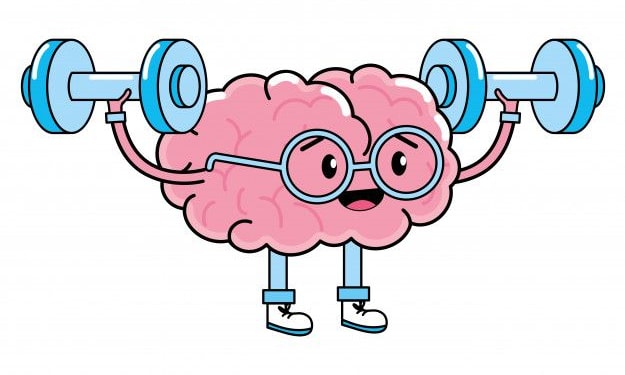How childhood affects your adult relationships
Understanding the Lasting Impact of Early Experiences on Your Interpersonal Dynamics

When delving into the realm of attachment styles, it can feel like deciphering a hidden code that explains why we either click or clash with others. Think of attachment styles as the initial settings on a sophisticated device that is uniquely you, programmed during your early developmental years. These settings encompass secure, anxious, avoidant, and disorganized types, each providing a distinct blueprint for how we manage emotions, connections, and challenges in relationships. If you resonate with the secure style, trust and closeness are likely your priorities as you navigate the highs and lows of relationships. It's akin to having an inbuilt relationship GPS that guides you in the right direction. Conversely, individuals in the anxious category may seek constant reassurance to feel secure, while avoidant types prioritize independence and may withdraw when things become too intense. If you lack organization, relationships can be as challenging as solving a Rubik's cube blindfolded. It can be tricky to navigate through mixed signals and understand the different styles of love, arguments, and reconciliation. By delving into these styles, we can strive for healthier and happier connections. So, the next time you find yourself puzzled by a relationship riddle, consider starting with the attachment style cheat sheet. It may just assist you in deciphering the code. Have you ever noticed how some conversations flow effortlessly like a gentle stream, while others feel like navigating treacherous whitewater rapids? Much of this disparity stems from the communication patterns we acquire from our family life early on. Think of your family as your initial classroom, where you learn the basics of self-expression, empathy, and sharing your inner world. If your household fostered open dialogues, you are likely comfortable speaking your mind and listening with an open heart in your relationships. It's akin to possessing a superpower, where words construct bridges instead of walls. Conversely, if emotional sharing resembled a game of hide-and-seek in your family, you might find it challenging to voice your needs or comprehend your partner's without some decoding. Consider a scenario where one individual excels in expressing emotions openly, while another prefers to keep their feelings hidden. This presents an opportunity for mutual growth by identifying these contrasting communication styles. By acknowledging these patterns, we can adjust our communication strategies to foster deeper connections. The process of recognizing, understanding, and managing our emotional responses is akin to honing our emotional intelligence. It is intriguing how our formative experiences serve as a training ground, equipping us with the skills to navigate the complexities of emotions. Some of us effortlessly balance feelings of joy, sadness, and anger with finesse, thanks to nurturing environments that nurtured these abilities. Conversely, others may find themselves learning to navigate emotional dynamics in adult relationships, where the stakes are higher and the margin for error is narrower. When it comes to adult relationships, navigating the aftermath of trauma can be likened to sailing. Sometimes, you may find yourself smoothly cruising under sunny skies, while other times you may be faced with turbulent storms. For those who have encountered early storms in life due to adverse childhood experiences like abuse, neglect, or family turmoil, the journey towards healthy relationships can seem daunting. These past experiences can act as invisible barriers, making it challenging to fully engage in close, trusting relationships. However, there is a beacon of hope. Healing and growth are not beyond your reach. Therapy and support networks can serve as your crew, providing you with the necessary tools and guidance to navigate through the haze of past traumas towards a clearer path. It's about acknowledging the storms you've weathered while understanding that they do not determine the course of your journey. With the right support, resilience, and understanding, you can steer towards a horizon filled with connections anchored in trust, understanding, and mutual growth. Welcome to the realm of repetition compulsion, a psychological phenomenon where we unconsciously repeat childhood patterns in our adult relationships. It's akin to being trapped on a never-ending track within the relationship theme park, continuously riding the same roller coaster without realizing that there are other attractions to explore. Escaping this cycle requires more than just recognizing the pattern; it necessitates understanding why we initially embarked on this journey. Think of it as a detective game, where you piece together clues from your past to unravel the mystery behind your present behavior. This newfound insight serves as your golden ticket to break free from the loop. Breaking these cycles entails a combination of self-reflection, perhaps some therapy, and a healthy dose of courage to embrace new ways of relating. It's about choosing a different path in the vast forest of relationships, one that may be unfamiliar but leads to more meaningful and satisfying connections. So, if you're prepared to venture into uncharted relationship landscapes, remember that recognizing the pattern is merely the first step; it's stepping out of it that truly embarks the real adventure. When you step out of the realm of parental relationships, a new adventure awaits. Consider your parents' relationship as the first love story you ever witnessed. It serves as the foundation for your expectations in your own romantic endeavors. This early influence shapes how you express love and handle conflicts. A positive parental model, characterized by mutual respect, healthy communication, and teamwork, provides valuable lessons in love. You learn about compromise, vulnerability, and the importance of support. Conversely, a tumultuous or absent parental relationship may present obstacles in your own relationships.It may establish a challenging precedent, but here's the twist - you are the director of your own love story. While the scripts from our childhood may influence us, they do not have to determine the final outcome. Recognizing the impact of those early experiences can empower us to rewrite the scripts, select different co-stars, and even create spin-offs that better reflect our true selves and desires. Whether you are dealing with a successful series or a less popular one, remember that you hold the power to craft your own love story that is both critically acclaimed and fulfilling. Consider your self-esteem and satisfaction in relationships as a picture of your childhood, where the foundation of your self-esteem was initially formed. Each validation, criticism, and support you received acted as individual threads that contributed to the intricate pattern. This weaving process not only affects the brightness of your self-esteem but also shapes the landscapes of your adult relationships and the decisions you make. A childhood rich in positive reinforcement and support serves as a guiding compass towards relationships that reflect this affirming pattern. You are more likely to choose partners who uplift you, leading to a fulfilling and mutually respectful love story. On the other hand, if your childhood was marked by criticism, you may unconsciously gravitate towards roles in relationships that do not serve your highest self. Wearing glasses tinted with doubt can greatly impact how you perceive yourself and navigate through love. However, the good news is that you have the power to shape your self-esteem. By recognizing the patterns that have been passed down to you, you can seize the opportunity to introduce new threads and create a self-view that supports the fulfilling relationships you deserve. So, let's grab your loom and begin weaving a masterpiece of self-love and satisfaction in relationships. Here's a bonus tip that can truly be a game-changer: remember the power of play. Think back to the sheer joy and carefree moments of playtime in your childhood. Those moments were not just about having fun; they were quietly shaping important life skills. Play is the unsung hero in developing social skills, creativity, and the ability to adapt to life's challenges. It taught us negotiation, teamwork, and empathy, laying the foundation for how we connect in our adult relationships. As we grow older, the echoes of those playground dynamics continue to influence how we relate, solve problems, argue, and make up. Couples who keep the spark of playfulness alive often find a deeper joy and resilience in their relationship. It's like having a secret weapon against the monotony and challenges of adulthood. So, how does play impact our adult connections? It infuses them with creativity, lightness, and the ability to see things from new perspectives. Embracing play in our relationships invites a sense of adventure and openness, reminding us that laughter, exploration, and growth are at the core of every strong bond. Let's grow together. Let us not underestimate the significant influence of those games we played during our childhood. They serve as the fundamental elements that contribute to the happiness and vitality of our adult relationships. If you are curious to delve deeper into how your upbringing has shaped you, explore the indicators that reveal the damage inflicted upon your self-esteem during childhood. Alternatively, you can also familiarize yourself with the signs that indicate your journey towards healing from past traumas.
About the Creator
Lillian Formelová
Learning how things works is one of my favorite hobby and i decided to share my knowledge with you,so i hope you learn something new!!:3
Enjoyed the story? Support the Creator.
Subscribe for free to receive all their stories in your feed. You could also pledge your support or give them a one-off tip, letting them know you appreciate their work.





Comments (1)
Family is of course our initial classroom